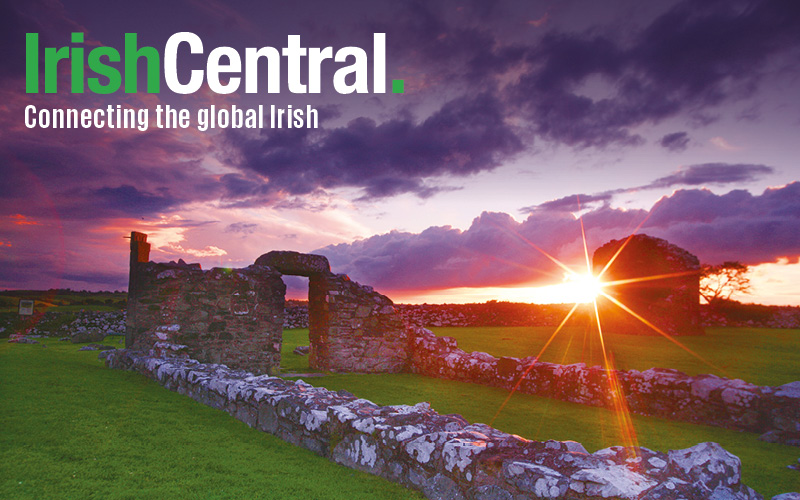Granny Farragher always had very definite opinions on which ducklings followed her paddling in the gene pool.
“Och, that one’s a Farragher,” she might say as she stabbed the turf fire with her spike and contemplated the traits of a grandchild.
Usually a strong-willed, independent streak would have you in her camp. If you didn’t measure up, well, there was always the in-law’s side that you might take after. Somehow, however, you knew that side was never as good in her mind.
This tradition has been kept alive by one of my cousins, the daughter of the eldest daughter that Granny christened “a Farragher,” along with myself.
This cousin has taken it one step further to include a discussion of traits common to our species in the same way a zoologist might write her doctorate thesis on the “Farragher Galwayus” that is common in the west of Ireland.
This species exhibits behavior that includes a thirst for hard work, a commitment to family stronger than any stone wall and a sly sense of humor.
Lots of additional analysis and speculation on the topic took place as we had relatives in from Ireland and Great Britain to surprise my father on the occasion of his 80th birthday. She was asked what he would think of the hoopla we had planned for him on the weekend.
“We Farraghers keep to ourselves and don’t like drawing ANY attention,” the cousin said with great certainty and authority. As she spoke, her eyes deliberately matched my gaze over the seemingly bottomless mug of Barry’s tea.
This didn’t sit well with the limelight-loving literary prostitute who was on the other side of the table, and I wisely chose to keep both middle fingers hidden from view as the rest of the cousins nodded in agreement.
Alas, my cousin has a point. “I’m not much of a talker,” my father said during the party, bowing his reddened face before my more outgoing mother made the speech thanking the relations for the effort they made to join our bash.
As a rule, the older generation of the Farragher clan will only have their photo taken at gunpoint. The few Farraghers who have bothered to create Facebook accounts rarely post anything about their lives. It is indeed hard to argue with my cousin’s hypothesis!
Not sure where I fit within this tight and narrow set of restrictions, but as the great Picasso said, “learn the rules like a pro so you can break them like an artist.” It’s hard work, but someone must assume the mantle in this family and it might as well be me!
Speaking of Facebook, a recent pair of friend requests came on the same day from two beautiful women claiming to be my long lost Farragher cousins. Barbara and Beverly live in New Hampshire and approached me with an offer to share the extensive genealogy research they had done.
Given my unquenchable thirst for a good story (YOU try writing a weekly column for 17 years: ‘nuff said!), I took the bait. I agreed to meet them, despite whispers of protest from some in the family, while on a business trip in Boston.
These lasses were bold, sweet, boozy, flirty, cackled loudly and giggled often, which means I fell madly in love with them immediately. My grandmother would have likely asserted that they were NOT Farraghers, yet they produced a meticulously curated book of research to prove her wrong.
They had traced my dad’s family back to the time that Michael Farragher married Mary Connelly in 1883. My grandfather Martin was the youngest of 12 children and he was the only surviving child (they lost one at childbirth) to stay back in Ireland while the others set their sights on America.
Most of us knew Martin’s sister, Ellie. She had set up a homestead in Bayonne, NJ and was the citizenship sponsor for the three of Martin’s kids who decided to emigrate. One of those kids was my father, who lived with Ellie and her two children.
They were like a brother and sister for my father, which was apparently enough for him. He never felt the need to look up the Darby, Delia, Catherine, Thaddeus, Thomas, Maggie, or the countless cousins they produced throughout New England and Chicago.
These ladies from New England found most of them. It was clear over a few drinks why they went to great lengths to understand where they came from.
Like a typical Farragher, their father Leo “kept to himself” in displaying emotion or talking much about his parents. Leo was taken from them too soon, leaving questions that these good souls have spent years trying to answer.
I represented the break they were looking for. When I put them onto the speakerphone with my father so that he could fill in some historical gaps and they heard his Irish accent for the first time, the blinked back tears at making this connection with their past.
They joined the party for my dad and it was evident to all how much they were profoundly moved by the Irish welcome their “new family” gave them.
With so many relatives left to discover, it looks like we will be forced to broaden the research and then contemplate the true definition of what it is to be a Farragher. We will no doubt add some pages to the book these ladies started, and I can’t wait to read the next chapter!
(Mike Farragher’s essays on life can be found on www.thisisyourbrainonshamrocks.com)




Comments